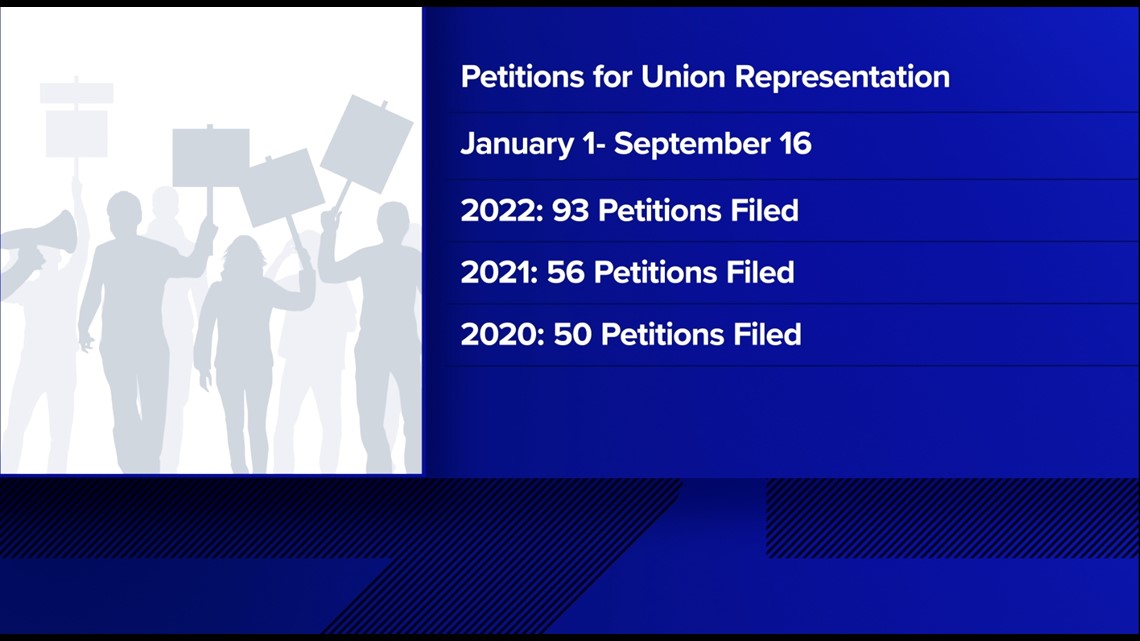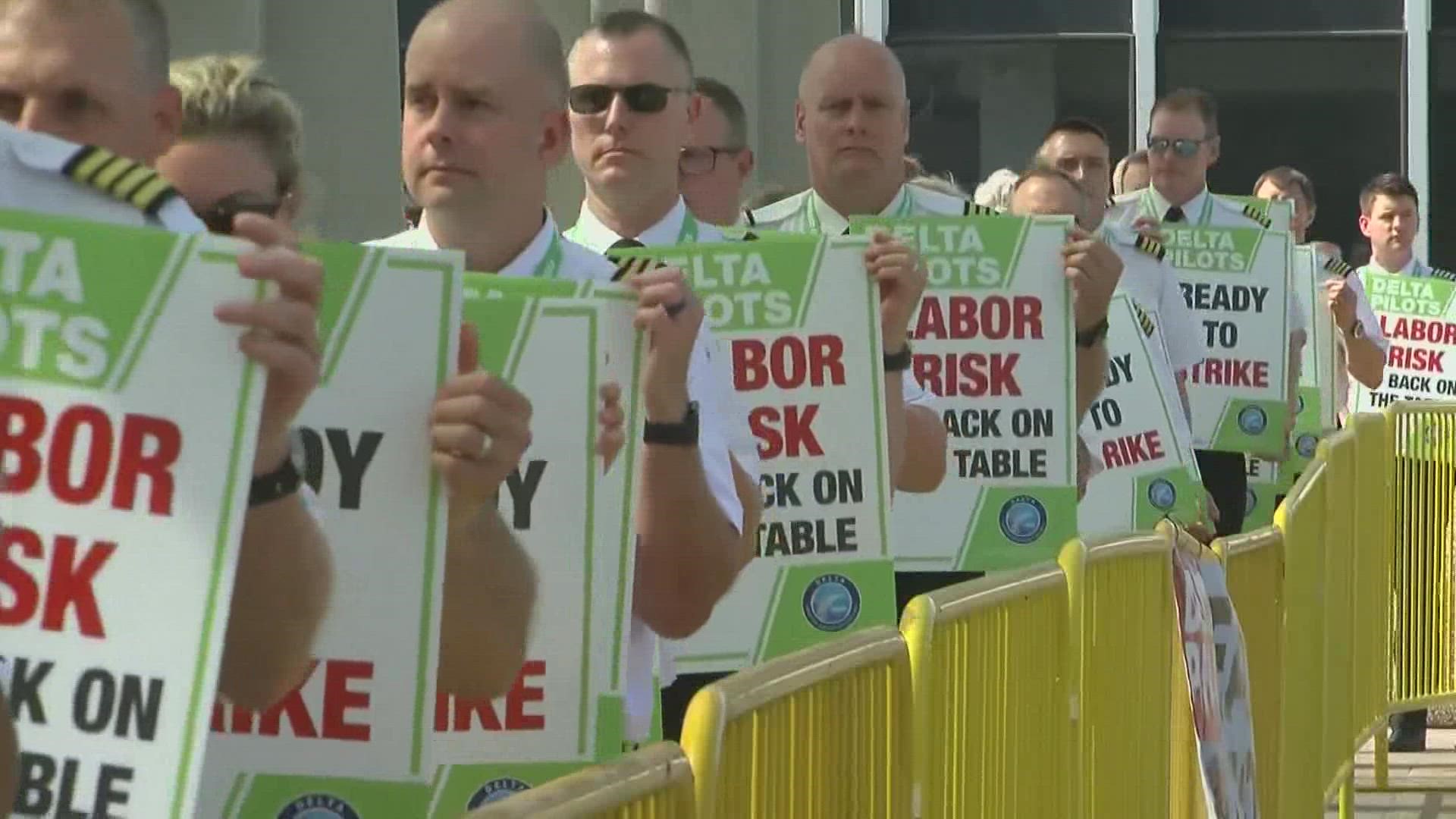SEATTLE — In just one month, Washington state has seen teachers, lumber workers and railroad workers hit the picket lines.
Labor experts said while we are seeing an uptick in strikes, worker stoppages have flat-lined in recent years.
According to the U.S. Bureau of Labor Statistics, in 2021 there were 16 major work stoppages beginning in the year. The department categorizes a “major work stoppage” as one that involves 1,000 or more workers and lasts at least one shift during the work week.
The lowest annual total of work stoppages was in 2009 with 5, and the highest was 470 in 1952.
“Strikes have basically disappeared in recent decades, and so any movement upwards is going to look like a resurgence,” Barry Eidlin, an associate sociology professor at McGill University, said.
Eidlin focuses on working-class power in America. He said while wages are a big issue, that’s not what gets people to the picket line.
“What gets people to go on strike is basically issues of dignity, respect and a feeling of lack of power essentially,” Eidlin said.
Eidlin said strikes work when done right, and workers have leverage in the current labor market.
“Employers are more likely to actually listen to what their workers are asking for, because they know that it's going to be a lot harder to replace them,” Eidlin said.
Many experts attribute the recent rise in the labor movement to the pandemic and worker safety standards.
“It's kind of dramatic, when you see the head of a company go to space, and the frontline workers can't even get masks,” Conor Casey, head of the Labor Archives of Washington, said.
Casey said there are historical parallels to what we’re seeing now, like income inequality.
“The disparity is greater than at any time since the Gilded Age, another time of labor unrest,” said Casey.
Casey said Seattle has a strong labor movement dating back to when it was just a territory.
“I think one important thing about this is that people are protesting, but they're doing it collectively,” Casey said.
So far this year, more Washington workers are requesting to form new unions compared to the first nine months of the last three years, according to analysis of data from the National Labor Relations Board.


“One of the few human rights that people have is to withhold your labor when you feel like you're not being treated justly.” Casey said.
Eidlin said it’s important for the public to know that workers don’t take the decision to strike lightly.
“It is very hard to go on strike, you are depriving yourself of your salary and most Americans don't have a lot of savings,” Casey said.
Experts will keep an eye on the latest trend to see if its a spontaneous surge in strikes or long term organization efforts.

